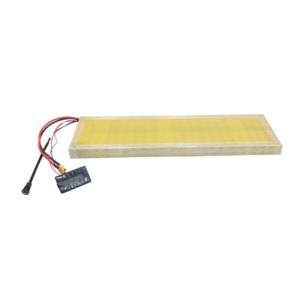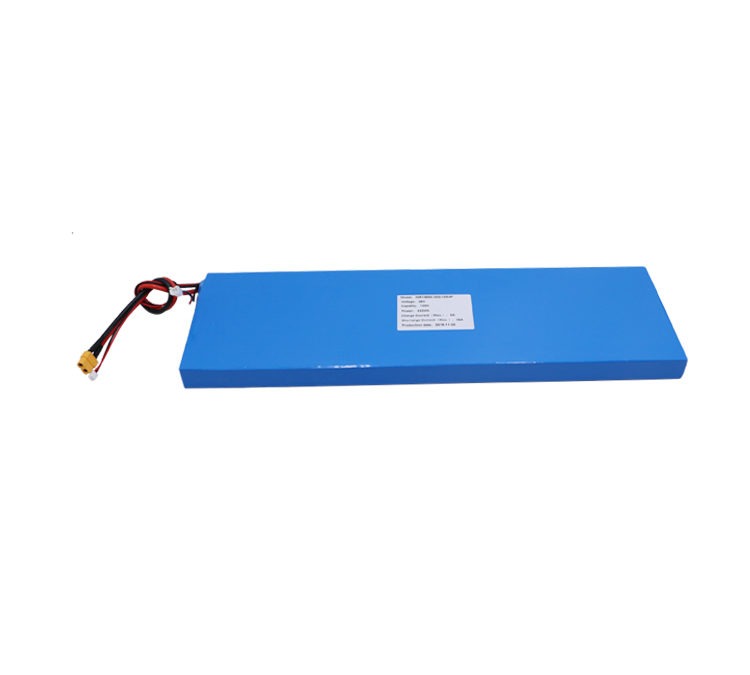Introduction of lithium ion battery in robot industry
In recent years, for lithium battery manufacturers, “machine substitution” seems to be more urgent. The explosive development of new energy vehicles has driven the new development of lithium battery industry, and the demand for lithium batteries is also increasing. However, behind the vigorous development of lithium battery equipment industry, there are still low efficiency, poor stability and low degree of automation.

Drive the technological upgrading and transformation of lithium battery manufacturers
Combined with lithium battery production technology, the automation and intelligence of lithium battery production line can be greatly improved. Improve production efficiency and product quality. Drive the technological upgrading and transformation of lithium battery manufacturers. At the same time, it integrates with artificial intelligence technology, automation, information and other intelligent manufacturing technologies. It is not only the premise of realizing chemical unmanned factory, but also the development trend of discrete production lines such as lithium batteries in China in the future.
Fabrication and assembly
In recent years, the demand for robots in the lithium battery industry has increased, while new energy vehicles will continue to maintain rapid growth in the next few years, and the demand for lithium batteries is still strong. The lithium battery manufacturing process includes coating, slitting, baking, winding, assembly, welding, liquid injection, formation, volume separation, pack assembly, etc. In fact, robots can be used in every link of the lithium battery production line, including the connection between single processes and processes.
Improve the automation and intelligence of lithium battery production line
By combining robot technology with lithium battery production technology, the automation and intelligence of lithium battery production line can be greatly improved. Improve production efficiency and product quality, and drive lithium battery manufacturers to carry out technological upgrading and transformation. At the same time, it is integrated with intelligent manufacturing technologies such as artificial intelligence technology, automation and informatization. It is not only the premise of realizing unmanned chemical plant, but also the future development trend of discrete manufacturing production lines such as lithium battery in China.
Unmanned chemical plant
The lithium battery equipment industry is about to usher in a robot revolution. This includes the use of robots to replace labor for equipment and process connection, the use of robots for key equipment, the improvement of production flexibility and the informatization of production line based on factory fieldbus. In the future, intelligent manufacturing technologies such as robot, artificial intelligence, informatization and automation will be fully integrated with each other. Form industrial extension and integration, form scale effect, and strengthen the ability to resist market competition risks. This is not only the premise of realizing unmanned chemical plant, but also the development trend of discrete manufacturing lines such as lithium battery in the future.
Advantages of lithium ion battery
Large capacity and high working voltage
The battery capacity is twice that of the equivalent nickel cadmium battery, which is more suitable for long-term communication. The voltage of traditional lithium-ion battery is 3.7V, which is three times that of nickel cadmium battery and nickel hydrogen battery.
Strong charge retention capability, allowing a wide operating temperature range
Lithium ion battery has good high-temperature and low-temperature discharge performance, which is higher than other kinds of cells.
Long cycle life
Lithium ion battery adopts carbon anode. In the process of charge and discharge, dendritic lithium will not appear in the carbon anode, so as to prevent the damage of internal dendritic lithium short circuit to the battery. After 1200 times of continuous charge and discharge, the battery capacity is still not less than 60% of the rated value, which is much higher than other types of batteries, and has the economy of long-term use.
High safety, safe and fast charge and discharge
Compared with the metal lithium-ion battery, the short-circuit resistance of the lithium-ion battery, because its carbon anode has a special electrode to replace the metal lithium electrode, which allows rapid charging and discharging, and can greatly improve the safety performance when the 1C rechargeable battery is charged and discharged.
No environmental pollution.
The battery does not contain harmful substances such as cadmium, lead and mercury. It is a clean source of green chemical energy.
No memory effect
It can be reused at any time, especially in wartime and emergency situations.
Small size, light weight and high energy
Generally speaking, the specific energy of lithium-ion battery is more than twice that of nickel cadmium battery. It is conducive to small and lightweight portable electronic devices.
Application of robot in lithium battery industry
High assembly efficiency
Robot assembly 8 sets / min, a robot can complete a variety of processes at the same time, and the loading and unloading time of each process is 6 seconds.
The working environment requirements are not high
The robot has no high requirements for the working environment and is not easy to affect the health of operators.
Efficient
The consistency of assembled products is good, and the yield is more than 95%.
High utilization
The robot has high versatility, high flexibility and high reuse rate. It can be used as an alternative to complex mechanisms and manpower.
Even though the application rate of robots in the lithium battery industry is low, there is a large market space, and robot manufacturers and lithium battery equipment manufacturers are looking for the interface of integration. With the development of unmanned and visualization, the demand for robots will increase with the connection of lithium battery equipment production process.
